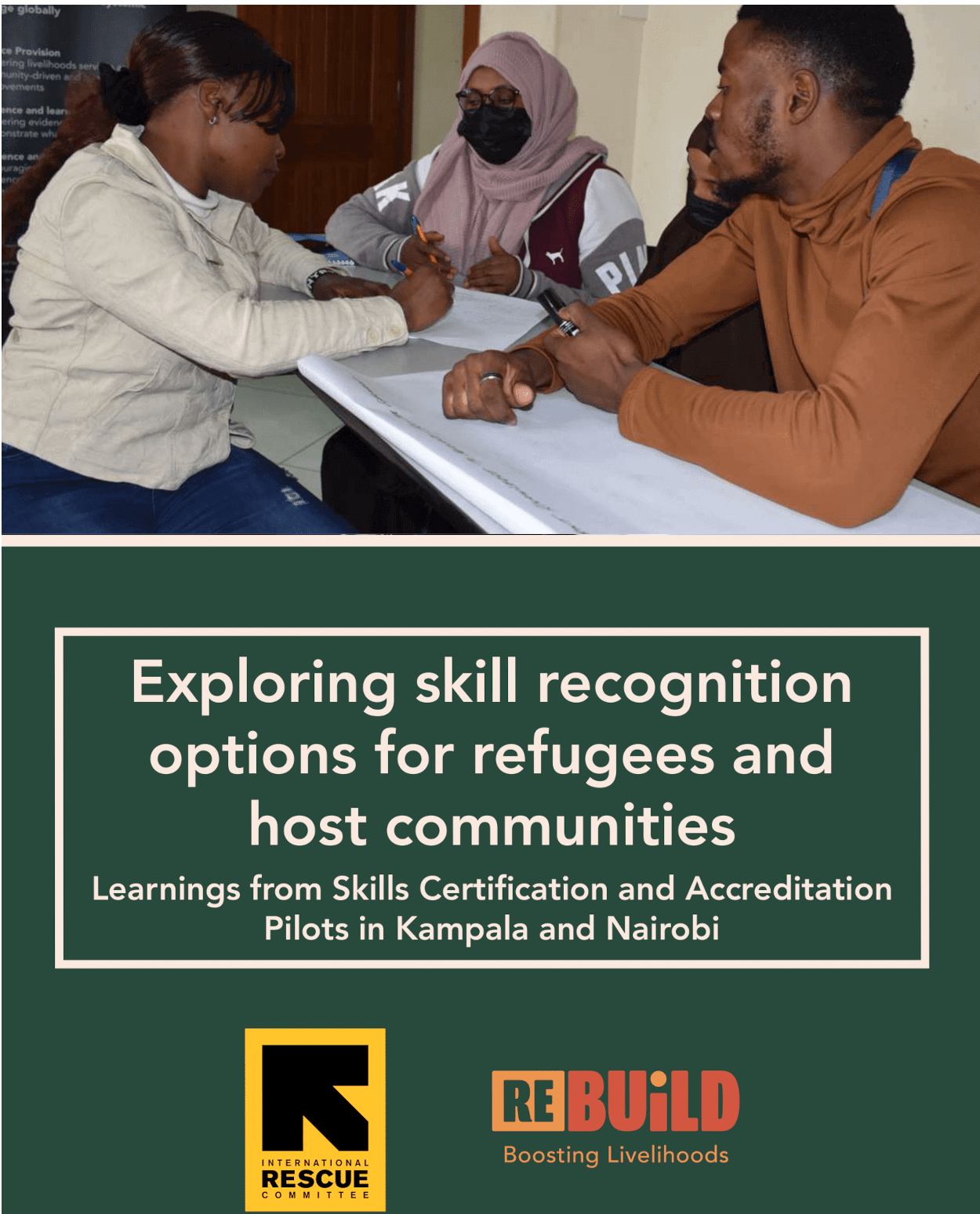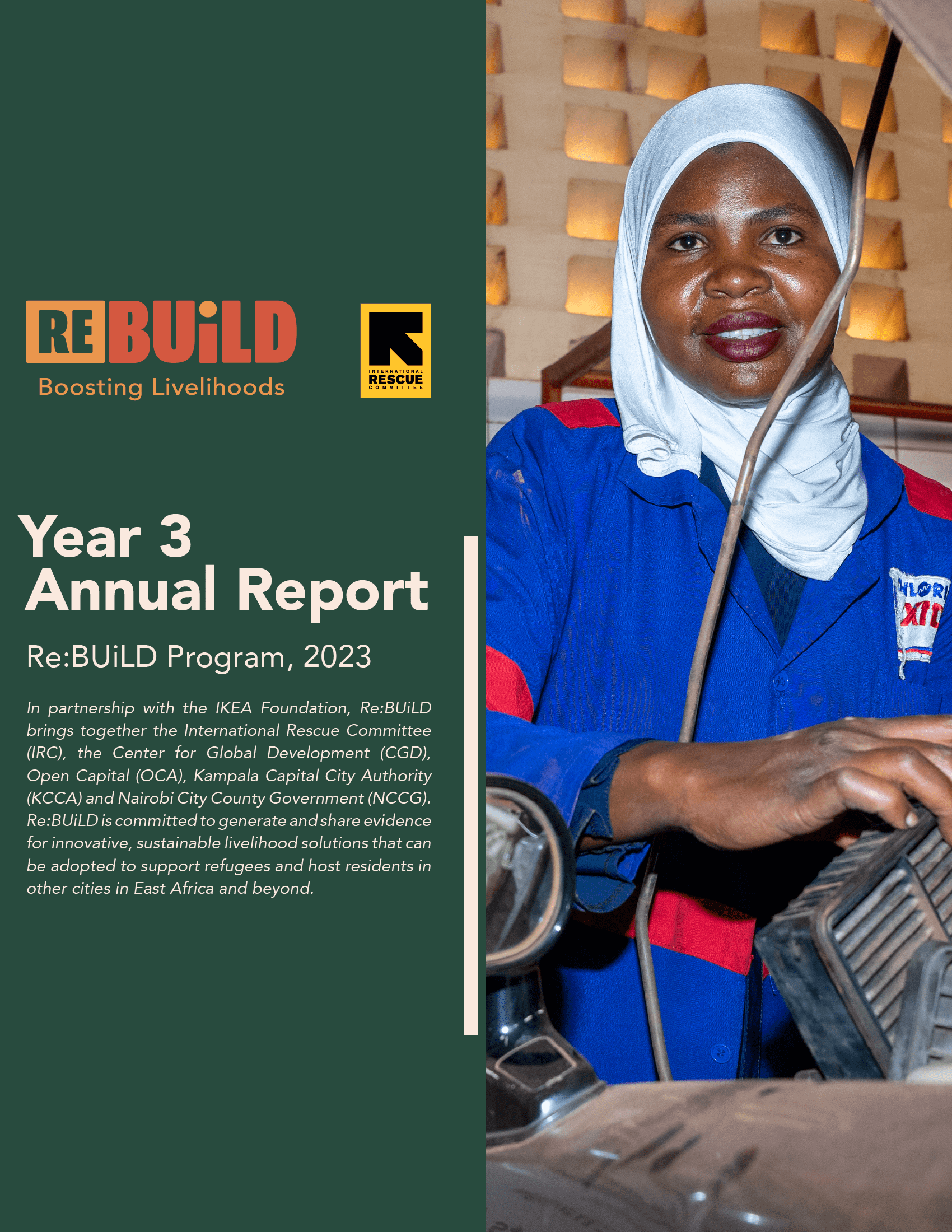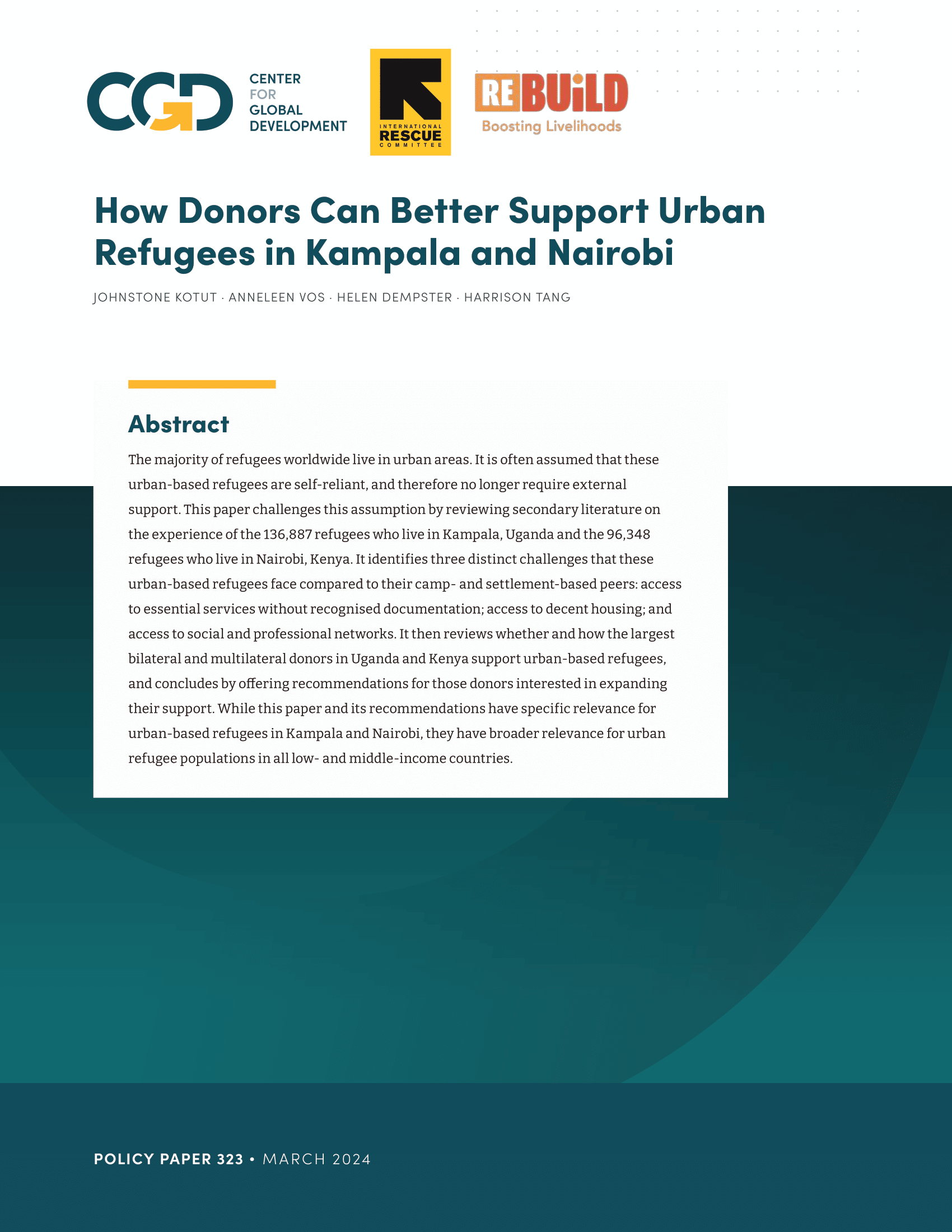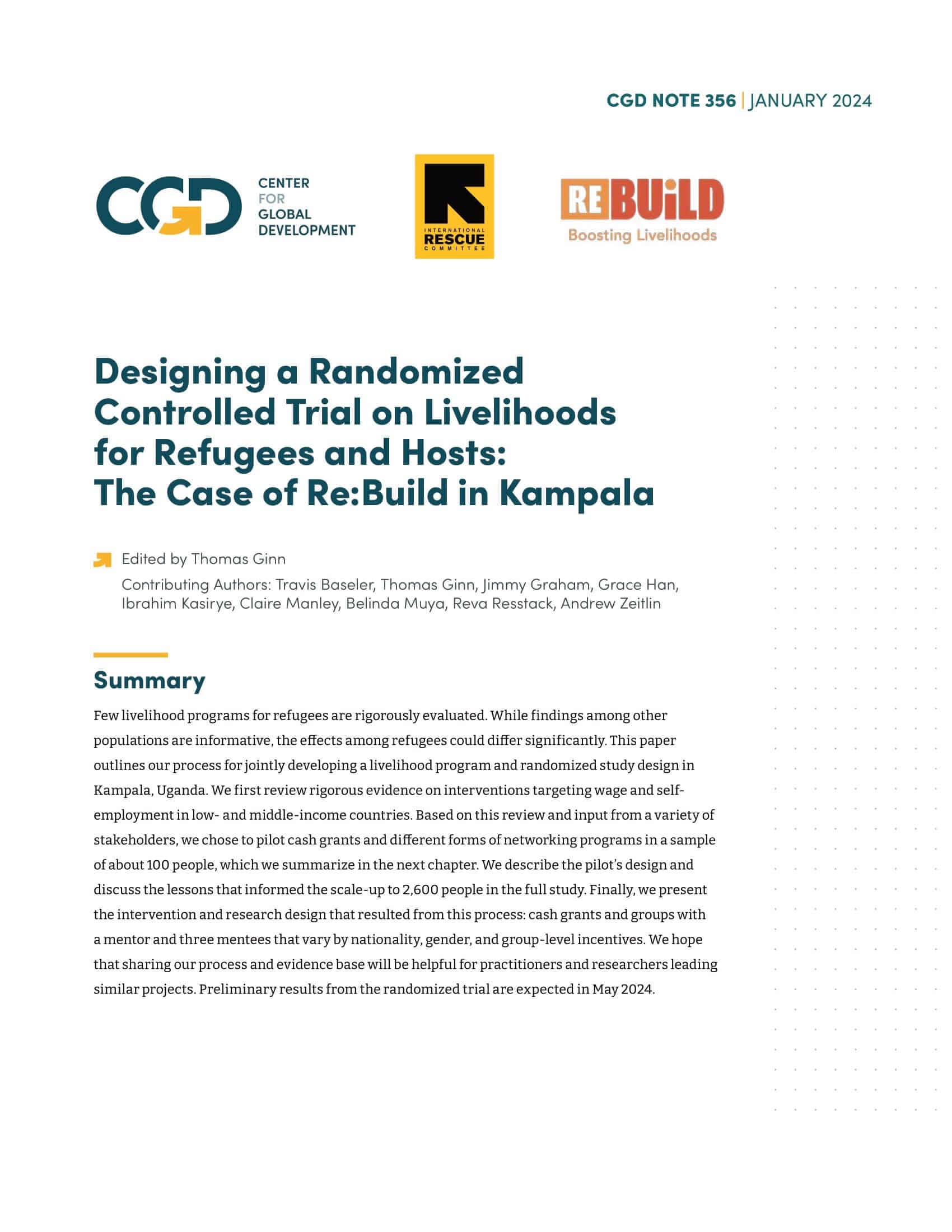Re:BUiLD Skills Certification Brief
Re:BUiLD Skills Certification Brief
Many refugees reside in refugee designated areas (refugee camps or settlements), an increasing number of refugees gravitate towards the capital cities of Kampala and Nairobi in search of better opportunities.
Not only do refugees bring their culture and customs to the host nations, but they also bring vocational and professional skills in diverse fields. Through our work in Nairobi and Kampala, refugees have demonstrated skills in catering, photography, plumbing, information technology, teaching, tailoring, hairdressing, welding, mechanics and repair fields etc. – and knowledge from higher education – engineering, architecture, pharmacy, nursing and midwifery, finance and accounting, etc. – that have positive implications for the local economies and the host communities of the host countries.
To participate in trading or find wage employment using their skill areas, refugees need to have the skills certified in the host countries. In so doing, they can have their formal education degrees accredited to the host country’s standards, both of which require extensive documentation, high costs, and navigating bureaucracy.
The urban refugees and vulnerable host community members operate in the informal sector. While many of them have experience and mastery in their fields, they do not have formal education or qualifications/certification in these skills. Their expertise has been achieved through self-teaching, practice, mentorship, and apprenticeship. Despite their expertise, the lack of formal recognition of their skills through certification has remained a barrier to their access to opportunities of employment and formalization of their labor engagements.
In our skills certification brief, we share the successes, challenges, and learnings from the Re:BUiLD Program’s skills certification pilots in Kampala, Uganda and Nairobi, Kenya. The brief offers key take-aways for the sector and for IRC’s future work. The information is presented per pilot, with all points relevant to both countries unless specified otherwise.
The pilots were scheduled to run from October 2021 – June 2022. During the pilot period, IRC intended to: engage accrediting and certification institutions and map out the processes, requirements and costs; recruit qualifying participants; facilitate their skill certification and; support linkages for employment opportunities.



